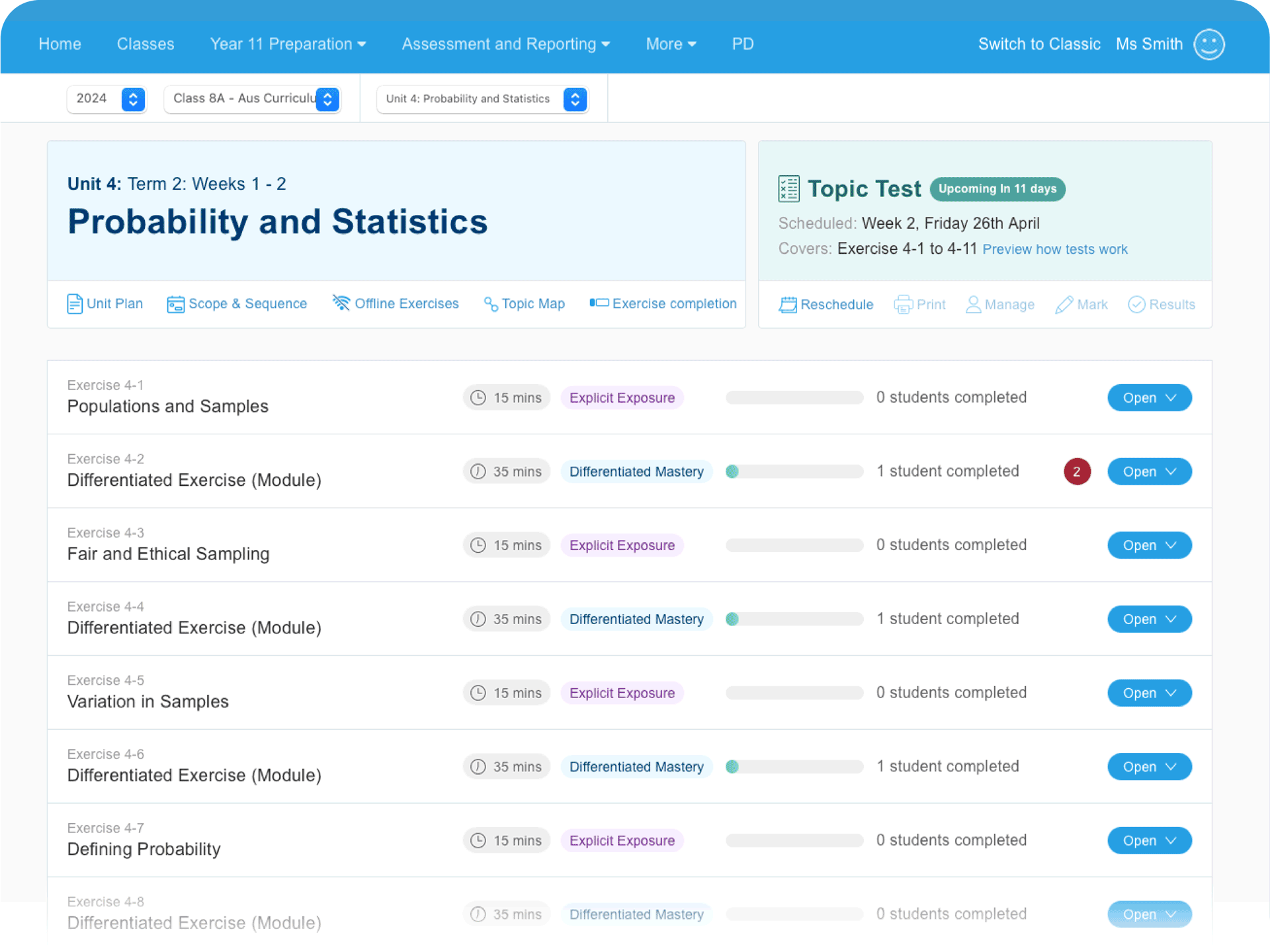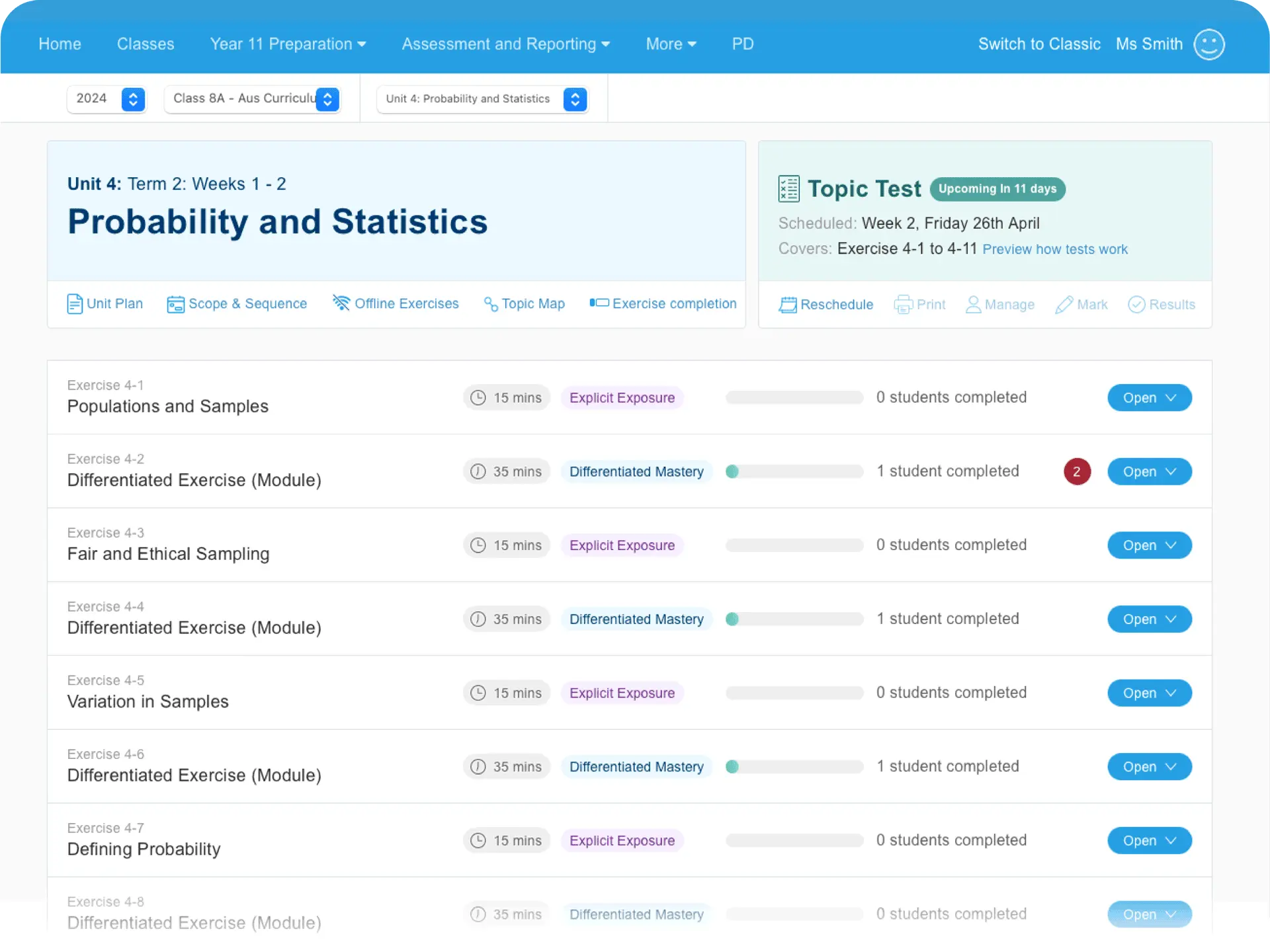High quality, easy to execute learning for years 5-10
Maths Pathway is an intuitive, effective and affordable program that provides educators with all the tools and resources to support and strengthen the maths education of every student.

Our Ethos
We combine the best of explicit teaching and differentiation for all educators, by providing the tools, resources, and strategies needed to empower students to excel in maths and build confidence in their abilities.
Maths Pathway in Action
See Maths Pathway come to life in our interactive demo! Explore all of the time-saving features before signing up for a free trial.

Mathematics for the Future
Maths Pathway covers every mathematics curriculum and provides all the tools and resources students and teachers need to be successful in maths.
A model for the perfect classroom:
Teachers discover all the gaps and competencies that each student has in the maths curriculum.
Maths Pathway personalises learning to each student’s needs with high quality resources and support.
Teachers, informed by detailed data on student achievement, use their expertise to provide highly effective explicit teaching.
Students are more engaged in maths, less anxious and deeply understand the maths they learn.
Students reach excellent levels of numeracy and are prepared for senior mathematics.
Our impact
For a decade, we have supported educators and students with access to high quality instruction and differentiation, ensuring that students are numerate, confident and well-prepared for their futures.
of Maths Pathway students are on track to study Senior Maths
of Maths Pathway students are on track to study Higher Maths

Evidence
We use best practice and evidence to help schools achieve real outcomes. Review the evidence behind Maths Pathway.
An evidence-based approach for mathematics
Leveraging learning analytics for better content design
Keeping students on task and on track
Quality Certificate of Learning Solutions
Maths Pathways is a game-changer in education, with its focus on differentiation and self-responsibility. It empowers students to achieve their best by catering to their individual needs.
My daughter loves using Maths Pathway! She is able to work very independently and loves the way the lessons are delivered. She is now mastering subjects at a year 9 and 10 level while consolidating her knowledge of the Year 8 concepts, which is exciting for her as a Year 8 student.
Maths Pathway is a great teaching and learning model with fantastic support and resources and an amazing interface for students – promotes positive learning habits, engagement, and enjoyment of mathematics.
Maths Pathway is a great resource to support explicit teaching of mathematical topics, track, monitor and improve maths knowledge while differentiating for every student. It has pathways for learning and through assessments, the program provides feedback to teachers and students in positive ways.
Because of Maths Pathways next year we will have three Year 9 students and three Year 10 students accelerating into VCE Mathematical Methods. I’d almost given up working out acceleration pathways before Maths Pathway, now it works so smoothly.
Maths Pathway free trial
Ready to explore Maths Pathway for yourself? Get started with a free trial today!
Start a free trial of English Pathway
The perfect school resource to help students identify and close learning gaps, and build functional English comprehension and language skills.



